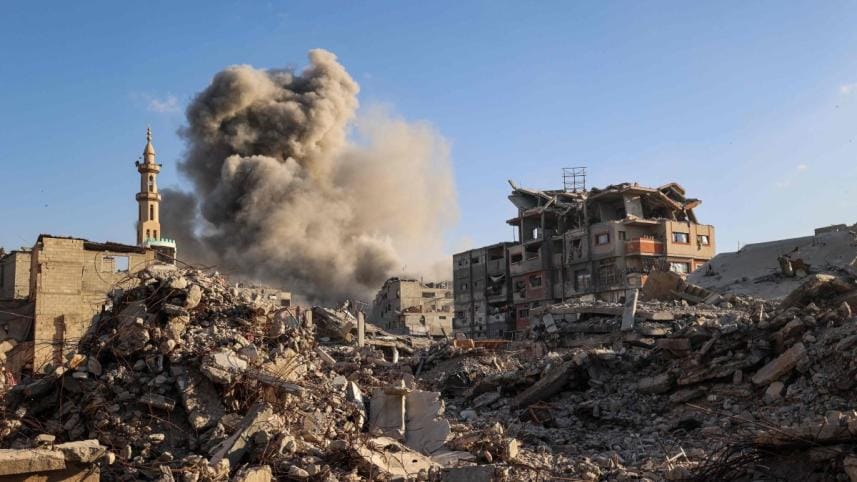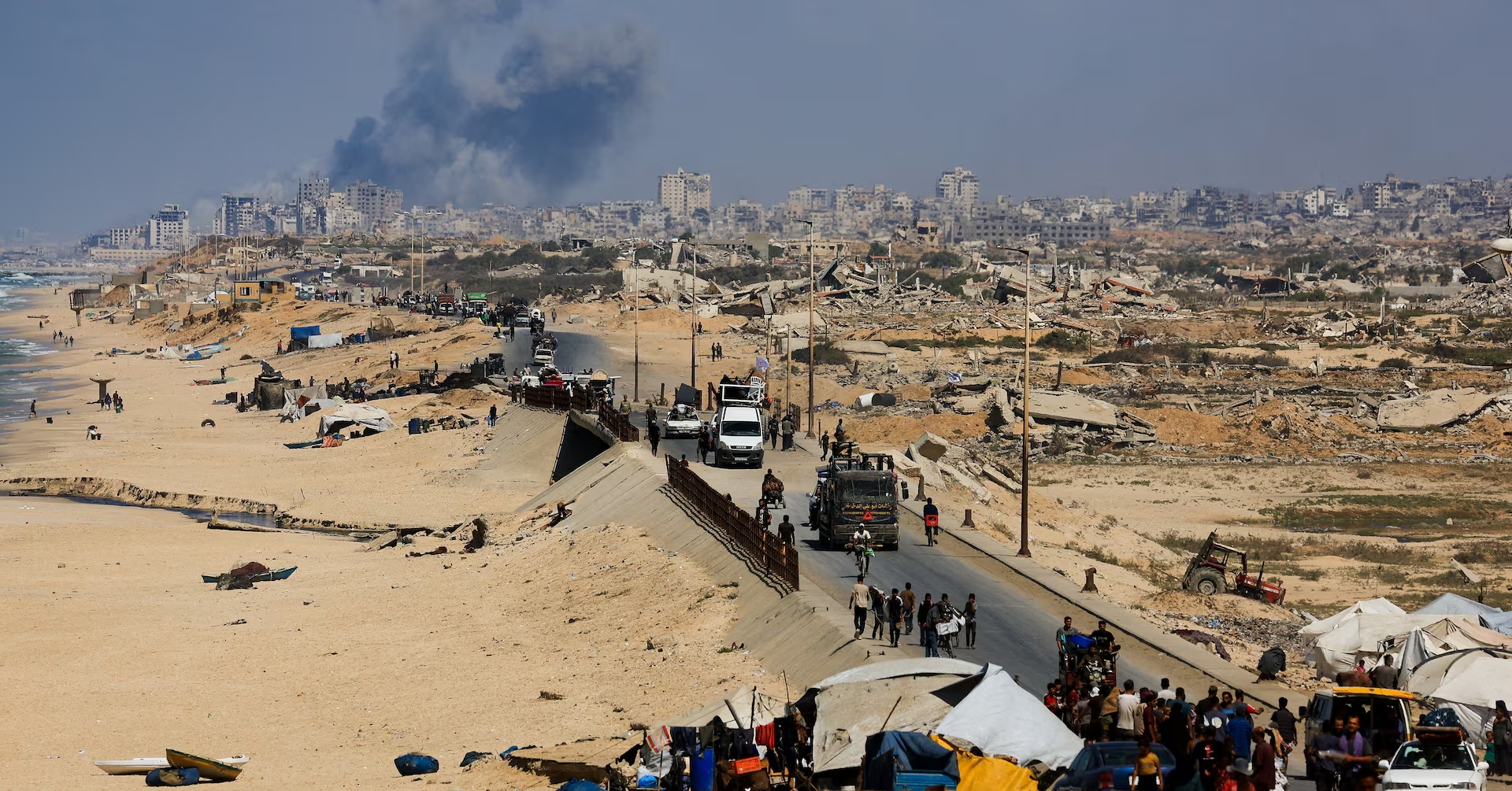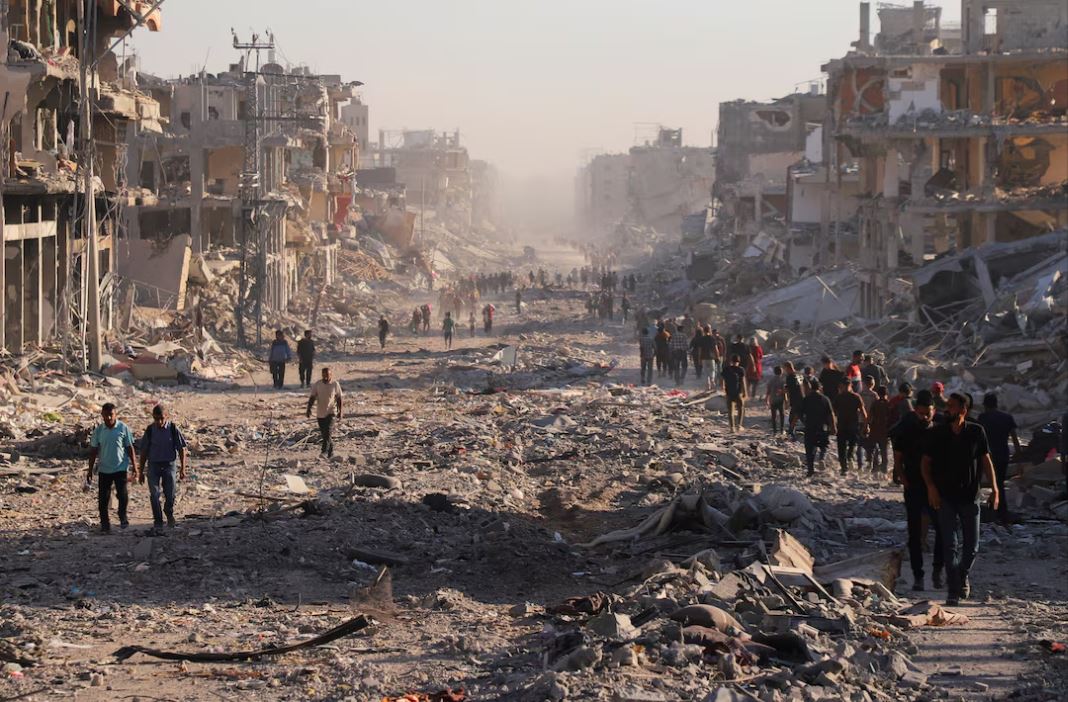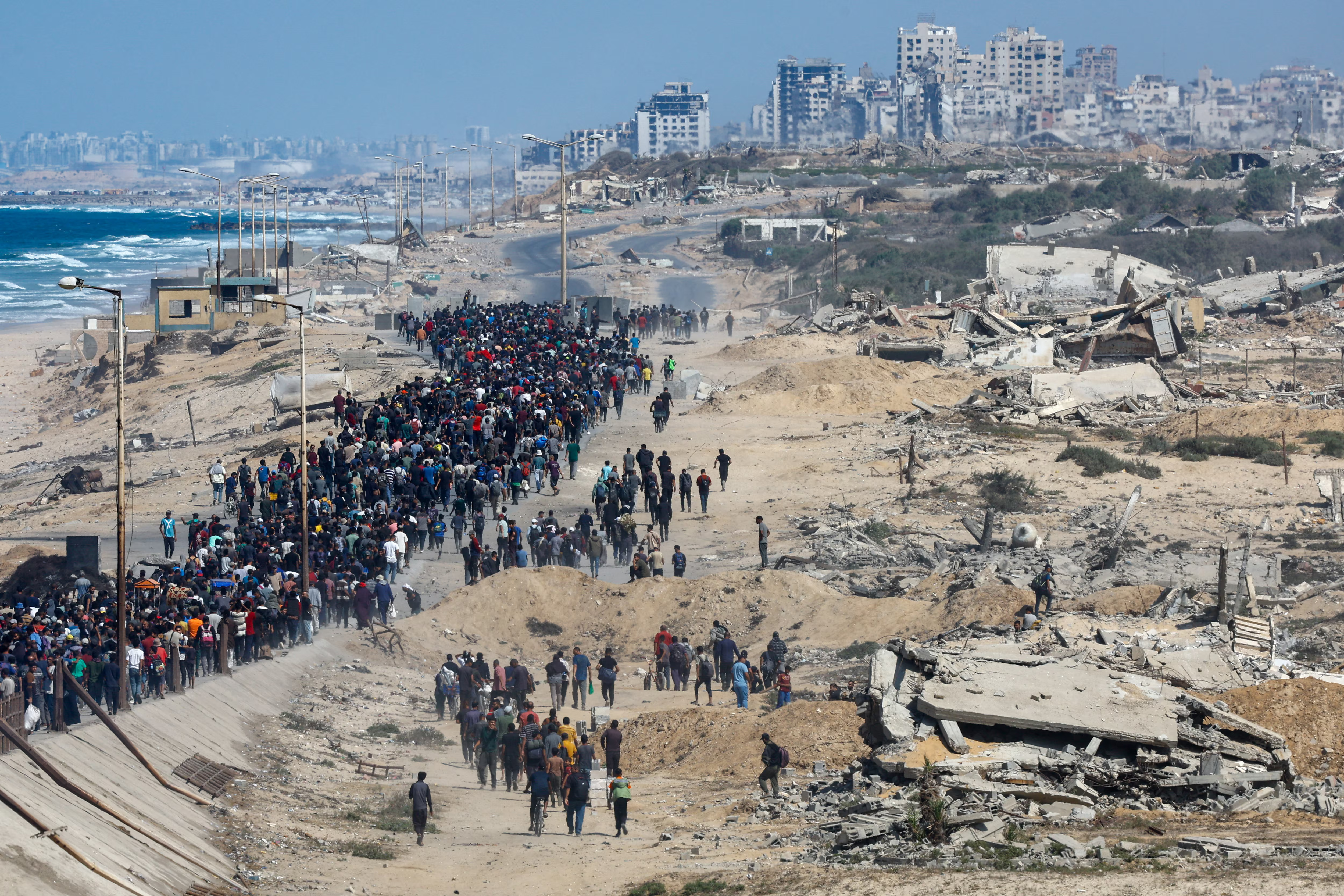Clash of barbarisms: Gaza as a metaphor for a fractured world

In 2006, I made a presentation to the Bath United Nations Association entitled, "Clash of civilisations, clash of barbarisms," in which I took Samuel P. Huntington, the American political scientist, to task for characterising the world in terms of the former phrase. This later morphed into a publication, "Clashing Values in Bangladesh: NGOs, Secularism and the Ummah," in which I saw various NGOs and movements in Bangladesh acting out global contestations on the local stage. As I ponder now in 2025, we are witnessing the colonial imposition of a one-sided "peace" treaty in Gaza—already broken in its first week, with bombings and humanitarian trucks denied entry—designed to restore the pre-October 7, 2023 status quo.
Thus, there is little mention of the decades of occupation of Gaza or encroachment in the West Bank, with no promises to end either. There are no credible undertakings for a two-state solution by the proponents of this "peace" deal, let alone by its extremist opponents. Reclaiming the historic "river to the sea" area clearly remains the objective for both the extremist victor and the vanquished, thus pursuing absolute, non-negotiable, and mutually contradictory ends. But who are these "Vs," squeezing out all conciliatory opinions and values that lie between them? They represent the most barbaric versions of their paths, forsaking any hope of peaceful coexistence as neighbours, and instead choosing to remain implacable enemies.
This trend suits those across the world who favour extremism as the only route to their own narcissistic urges for power, their fragile egos valorised through increasing fragility and humiliation of others. Such extremism is strongly characterised by what is rejected or hated, rather than what is liked and valued, feeding on negativity and the confected fear of the other. It is this extremism that binds the Israeli far-right and the Hamas in Gaza, each needing the other for their relevance.
So, it is not a clash of civilisations that we are now witnessing, to use Huntington's terms, but rather the opposite—the manufacture of barbaric intolerance, acted out through destruction rather than construction. Beyond immediate and mobilising slogans, there is no "what next," no "what comes after." No real conception of the good life, apart from Trump's dystopian sunset strip.
Last year, I was reminded of a better glimpse of that good life: a BBC Proms concert in London with Daniel Barenboim conducting the orchestra made up of young Israelis and Palestinians of the West-Eastern Divan Orchestra. It was a hugely moving occasion. And let's not forget Colum McCann's Apeirogon, the tale of Rami and Bassam in Jerusalem, fathers of lost daughters from opposing tragedies who meet and share their grief across the divide.
But civilised people on either side of the wall seem hostage to the barbarity of their leaders, who are intent on pursuing mutual demonisation as the basis of their power, whipping up their millenarian supporters into frenzies of hatred, consumed by alienation and removal of purpose in their own societies. This clash of barbarisms is a zero-sum game where the effort is directed at the destruction of the other rather than the prospect of mutual gain through socially productive collaboration.
In this sense, Gaza has become a metaphor for something wider and far more dangerous. The politics of extreme identity and naïve nationalism are taking over in many parts of the world, whether in the form of Brexit in the UK or "Make America Great Again" under Trump. Both movements, led by questionable millionaires and funded by equally dubious billionaires, are underpinned by pyramidal debt structures. Both movements start with scapegoating contemporary immigrants for the supposed socio-economic exclusion of the "white" poor. They incrementally turn upon longer-established minority communities as the idea of nativism becomes more racially exclusive, such as the white supremacism in the US and parts of Europe. Sadly, in Europe, we are painfully aware of past pogroms and discrimination against ethnic minorities, and there is a real fear that we stand on the brink of repeating such horrors.
The exploitation of incremental exclusion, achieved by redefining the rights of belonging and citizenship, is now understood as a form of fascism. In this system, states enforce strict boundaries by denying access to those deemed "beyond the pale," while simultaneously increasing the exploitation of their labour to benefit encircled elites, who increasingly rely on rents rather than profits to maintain their privilege. These forms of internal slavery have often been depicted in dystopian novels and movies, but are now on open display.
Let us return to Gaza and the West Bank: the former occupied under apartheid-type conditions, and 40 percent of the latter violently occupied by Israeli settlers, backed up by their army, labelling any resistance as terrorism. In both contexts, it is not just space that is being controlled, but also access to employment and income. Under periods of relatively quiescent occupation, Palestinian labour from Gaza crossed daily into Israeli employment but with no rights to influence wage determination and conditions. Akin to slavery, this income tap could be turned off for "misbehaving" individuals who are fast-tracked to Israeli jails, as evidenced by the 1,700 held without charge and then released, returning by the busload as part of the recent hostage exchange "deal".
The underlying context here is undeniable: the sustained removal of dignity over decades, starting from the Nakba in 1948. A deliberate policy of humiliation, culturally and materially. It is small wonder that such atrocities beget atrocities, as October 7 undoubtedly was, timed and designed deliberately to enable further isolation of Palestinians. But barbarisms beget barbarisms. This is not a clash of civilisations. This is a politics of non-negotiable ends. Any scope for negotiation and compromise has been systematically removed from it, made institutionally redundant in favour of brutish violence, threats and intimidation, and further fuelled by the military-industrial complexes wherein lie further opportunities for rents and profits by the world's self-destructing elites. Are we just pawns in a global game of barbaric chess?
Dr Geof Wood is a development anthropologist and author of several books and numerous journal articles. He is also emeritus professor of international development at the University of Bath, UK.
Views expressed in this article are the author's own.
Follow The Daily Star Opinion on Facebook for the latest opinions, commentaries and analyses by experts and professionals. To contribute your article or letter to The Daily Star Opinion, see our guidelines for submission.




 For all latest news, follow The Daily Star's Google News channel.
For all latest news, follow The Daily Star's Google News channel. 


Comments